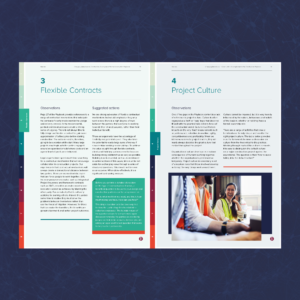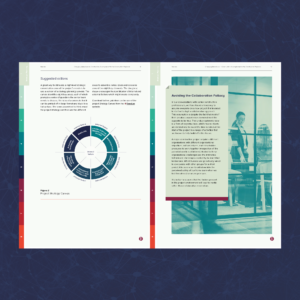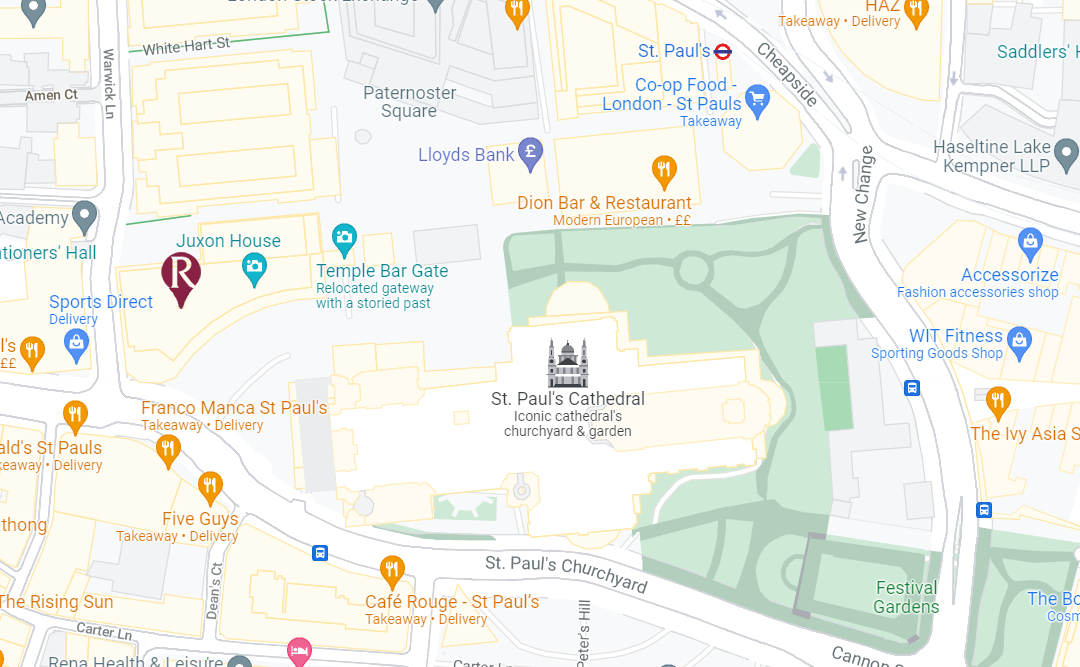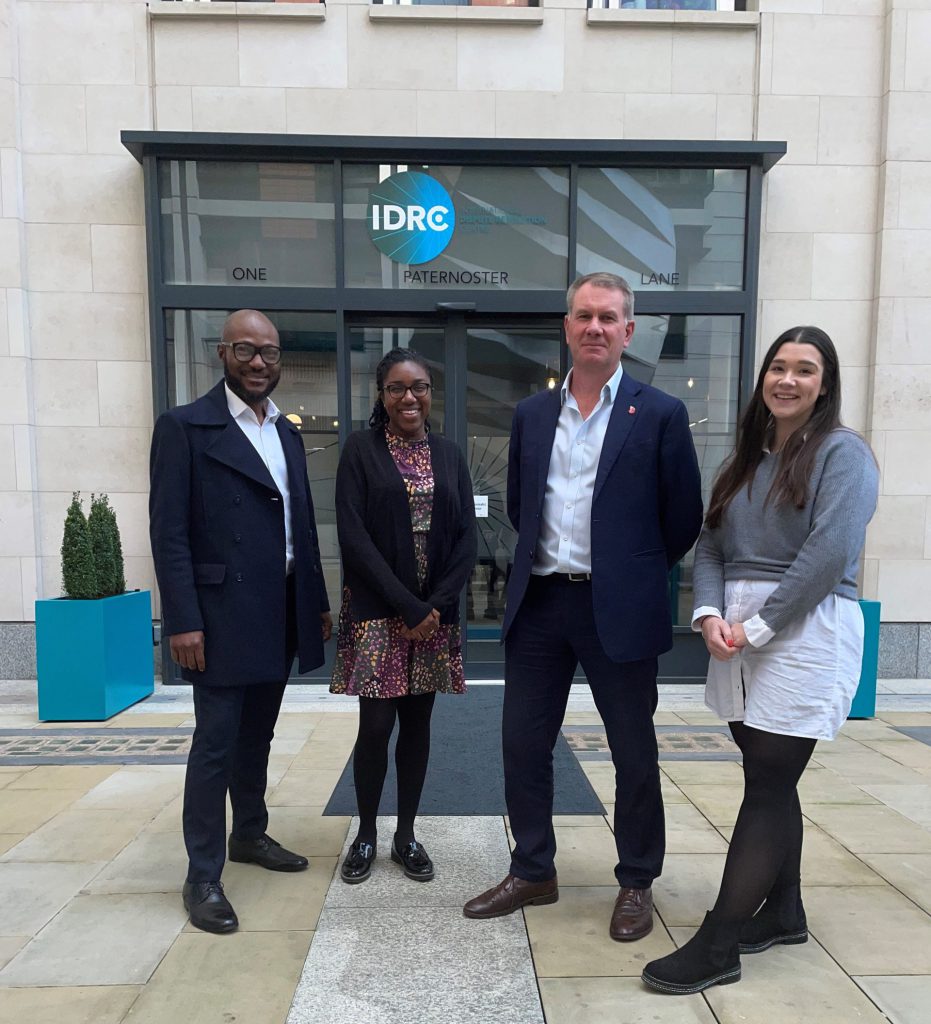
Dec 1, 2023 | News and insight, Tools
In a fast changing world, large organisations are increasingly engaged in projects and initiatives that are strategically critical. Such projects are likely to involve hundreds of people from different parts of the organisation working as cross-functional groups. The success or failure of such important initiatives is likely to be heavily influenced by the extent to which leaders and managers can motivated and organise these numerous groups to come together work as a single effective ‘Big team’.
A team of teams
There is an important distinction to be made between ‘big’ and ‘small’ teams. These simple words explain a much deeper concept. Terms like small and big are part of our basic language. They can therefore be seen to be generic, having a wide range of applications. In the context of teams, however, these two words have a precise technical role which helps establish some key differences.
The small team is the unit of production within any large enterprise. Emperors and generals have historically organised their armies and administrators into manageable groups. This is not however a top-down management strategy to create neatly arranged grouping on an ‘org chart’. It is actually a reflection of how humans prefer to work with each other. Groups of people naturally fall into sub-groups as the numbers involved start to increase. This is partly because we can typically maintain close engagement on a regular basis with up to ten people, but beyond that number, communication starts to become more sporadic and building close working relationships is more difficult. The point is that large teams do not exist as a single homogenous whole, shaped by a unitary corporate culture. Instead, a ‘Big Team’ is an organic collection of small groups whose roles and activities shift and change as the project they are engaged on progresses. Organisational success therefore depends upon the extent to which the leadership can enable this assembly of small teams to work effectively together as sub units which make up a single Big Team.
When working with leaders, we frequently hear the desire to create a high-performing team, but without having a clear idea as to what high performance actually entails. What constitutes performance is often subjective, depending upon the expectations of a particular team. When working with a collection of teams that make up a ‘Big’ team, however, performance must be articulated much more clearly so that there is a common understanding by everyone involved as to what is expected.
It is possible to map out a progression of activities that will enable the development of a high-performance environment which has the following features:
- Clear objectives fixed around sponsor and customer needs, giving the team a firm understanding of the desired outcome.
- Low hierarchy allowing direct connections between leadership and other specialist teams.
- Confidence in a low blame culture balanced with an expectation of high accountability.
- Fluid peer-to-peer networks where teams are encouraged to engage directly with one another to explore solutions.
- Strong behavioural norms which support a collaborative culture
Given the right environment, we have identified six primary elements that numerous practitioners have found to have a significant impact on the success or failure of a team engaged on a major project. They work in the following progression:
1. Shared Leadership
Big teams don’t necessarily need big leaders. All teams need some form of leadership but in Big teams, the ability of a number of individuals to take on the various aspects of leadership at various stages is critical to success.
2. Establishing the right project culture
One of the critical elements of success is to build a culture of alignment, but this cannot be mandated. Instead, the leadership team must create the right conditions to allow the desired project culture to emerge and mature.
3. Build alignment
Big teams must be able to focus on the right direction of travel even if they are not yet clear on the exact route. There are a series of practical activities that should be mandated as part of the set-up phase for each team and sub-team the is to be part of a major project. These include setting a clear vision, articulating core values, building interpersonal relationships with other teams, and agreeing a set of common rules for communication
4. Accelerated learning
Fast learning habits allow the teams to explore and experiment moving forward in short bursts of activity and adjusting plans as they go. The team is, in effect, learning how to learn. In a fast-changing environment, however, they may not adjust quickly enough to the new conditions and performance or output is likely to decline.
5. Maintain engagement
Leaders cannot force their followers to be engaged. All they can do is to create the right environment and anticipate the team will find their own drive and motivation. The core engagement activity is around communication and the use of an aligning narrative that informs and influences the messages and stories the teams use to understand what is happening in the wider organisation.
6. Build team resilience
In any complex and volatile environment, individuals and teams will find themselves in prolonged periods of pressure and stress. Team resilience differs from individual resilience in that given the right preparation, team members can learn to support each other so that they work together through periods of difficulty.
Summary
Teamwork is a fascinating and multifaceted subject. The contents of this article have hopefully given you a glimpse of the concepts, processes and structures for setting up a Big Team to give it the best opportunity to succeed. The component parts of leadership, culture, team set-up and team engagement are familiar to anyone who has frequent involvement in major projects. The framework is nevertheless novel in so far as it places the human components at the centre of business planning where as common management practice allows them to drift to the periphery.
There are, however, few shortcuts in the process. Building an effective team requires an investment in time and energy, both in the planning and implementation. The reward for this investment can be significant, improving the chances of bringing the project to a successful conclusion, on time and on budget. We would encourage any leader likely to have an involvement in a complex project to make the effort to move beyond standard practice and take the necessary steps required to build an effective Big Team.

Nov 21, 2022 | News and insight
20 years ago, ResoLex focused on dispute resolution for teams involved in major projects and complex environments. Over the years, we have developed a deep understanding of how people work together in teams and within the stresses and strains of complex environments – a recipe for behavioural risk! Fast forward to today, and we use that knowledge to help teams strengthen their social competencies, manage behavioural risk and embed a collaborative environment to deliver better outcomes.
Our focus is always on the people: how individuals come together to form a team, the impact of the project environment on relationships and the function of processes and structures to enable people to deliver successfully. So, what do we mean by ‘create more than just a team’? We all strive to create a team that is more than just a workgroup. Our aim is for teams to be effective, but what does that look like?
In major project delivery or any complex environment, an effective team is one that can respond with agility and develop new solutions to the dynamic challenges that the environment brings. A team like this is often made up of people with diverse perspectives, who can safely challenge one another to get to the best outcome. An effective team must have a psychologically safe culture – enabling individuals to feel included and encouraged to contribute their diverse perspectives to the benefit of the project.
One of the early challenges for project leadership is to decide how to bring diverse groups together so they can work effectively, not just on their own element of the project, but critically in the way they support the outputs of other teams with which they must interact and here lies the importance of communication and aligning cultures. Edgar Schien argues* (and we agree!) that for humans to work effectively together, they need to engage based on ‘level two relationships’ – personal, cooperative and trusting relationships where we see others as human beings, acknowledging the whole person and with symmetry in the confidence and trust that each person in that relationship can have in the other (without symmetry, the relationship will remain transactional or will even end). In a ‘level two relationship’, we have a greater level of knowledge of the factors that shape the lives and behaviours of those we work with regularly. When we have a greater degree of understanding, we accept others for who they are as human beings rather than simply identifying them with the job they do. We are consequently more able to build the trust, respect and healthy interactions that are critical to creating psychological safety and laying the foundations for the high-performing team that we desire.
Without this work, project teams are at risk of defaulting to the kinds of behaviours that lead to a hostile working environment, blame culture and workplace bullying, which are not only unpleasant to experience but lead to underperforming, ineffective teams.
This blog was inspired by Anti-Bullying Week, and you might be wondering, what does that have to do with building an effective team?
The Anti-Bullying Alliance (ABA) are the official organiser of the Anti-Bullying Week campaign. Every year, the campaign aims to raise awareness of the bullying of children and young people in schools and elsewhere and to highlight the ways of preventing and responding to it. Whilst we are somewhat removed from the world of educating young people, we recognise that our working environments are the next step for them as they develop, and many will spend their careers working in the teams and according to the cultures that we are building.
We are by no means experts on bullying, but we know bullying doesn’t just stop at childhood – adult and workplace bullying takes place and can have an especially damaging impact not only on individuals but on whole teams and organisations. We wanted to highlight the campaign and share some thoughts on how building an effective team creates a working environment where people feel confident, supported and empowered (and, of course, not bullied!). Just as we recognise there are actions that can be taken to prevent reaching the dispute resolution stage, there are also actions that we can take as leaders to prevent the unhealthy cultures and environments that tolerate workplace bullying from developing in the first place.
Remember these key ingredients so that you can make sure you are doing more than just creating a team – you are building an effective one.
We hope this information has been useful, if your team needs support in strengthening those social competencies, please get in contact with us. If you are seeking support for workplace bullying, here is an online resource from CIPD, the Professional body for HR and people development.
* Humble Leadership: The Power of Relationships, Openness, and Trust, Edgar H. Schein, 2018

Jan 28, 2022 | News and insight
Event date: Wednesday 19th January 2022
The Major Projects Association hosted a thoughtful panel discussion on the skills needed to deliver major projects in the future. It is apparent that many factors are driving the need to consider this issue at present: the speed of technological development and environmental change, the increasingly complex and layered nature of major projects, changes in our social organisation and the way we approach and think about work, to name a few. Though the panel didn’t provide all the answers, a consensus did emerge around the need to have a more robust approach to developing behavioural skills in project leaders.
The panel discussed how our modern world more than ever before, the role of a person in an organisation is to engage with others to deliver impact, elevating the need for hyperconnectivity, empathy, agility, and effective people management. The “land of skills scarcity” in project delivery is expected to persist, and with multiple vacant roles available for every qualified project manager, the most successful projects will be those that are able to manage and apply resources and talent better than others. The panel also considered the deficit in technical skills, especially relating to net zero targets. Achieving our sustainability goals will require huge social changes, both domestically and in the infrastructure we deliver. Major projects of the future should be about delivering in response to what we need, going back to the beginning with a mindset to question the need for the project in the first place.
Some of our key takeaways:
- We have to use a different set of eyes to think about what skills we will need to deliver major projects in the future. The context will re-define a lot of things, as we have all experienced over the last couple of years with the pandemic.
- We can use the need to change as an opportunity to diversify our teams and access greater talent. To do that we need to develop a diversity in ways of working that enables a wider range of people to deliver effectively and consistently.
- The ‘superhero leader’ mindset will not serve us well as we deal with increasing complexity. We must instead leverage the strengths of everyone through collaboration, making room for people to be themselves and do what they do best.
- The challenge around skills is often more about how effectively organisational leaders are able to manage change in society – responding to the complexity and unpredictability of our reality.
Chair: Nathan Baker Chief Executive Institute of Occupational Medicine
Panel:
- Josie Cluer Partner EY
- Michelle Lambon-Wilks Development Director National College for Nuclear
- Rob Leslie-Carter Director Arup
- Sarah Mukherjee MBE Chief Executive IEMA

Jan 13, 2022 | News and insight
What is it?
Changing Behaviours in Construction is a practical document, written as a collaborative effort between ResoLex and some of our associates. We came together to reflect on the government’s Construction Playbook and developed some practical advice for project leaders to be able to successfully implement the directives in the Playbook, through building and maintaining strong, high-performing teams.
Who is it written for?
The document is primarily aimed at project leaders and those responsible and accountable for successful project delivery. The eight themes in the document should however resonate with professionals throughout the team and we hope to provide tools that can be easily implemented by people in a number of different roles.
What are the key takeaways?
There are actions that can be taken, both early in the setup of the project and later as the team develops, that will enable projects to achieve the shifts in performance required by the Construction Playbook. We have divided our thoughts and suggested actions into eight key themes and also provided a quick rundown of our top 10 suggestions for improving performance through collaborative behaviours.
Read or download ‘Changing Behaviours in Construction’ here!



Dec 14, 2021 | News and insight
We are delighted to welcome Elle to the ResoLex Team! Elle is our new Marketing and Communications Manager and the fact you’re reading this means she is already succeeding!

Elle is a self-starter with experience in all things marketing and communications, from social media management, content creation, brand management to event planning and is a great match to our values and team working ethos.
Within ResoLex the role is broader than in many organisations and Elle wears many hats (we all wear pretty fancy ones) – living by our collaborative values. Part of her role is to communicate our knowledge and experience, share some practical resources to help your teams and of course, market how great we are!
In the new year, you’ll see a host of the ever so popular and engaging Roundtable events and see our Professional Learning Network grow – get in touch with her On LinkedIn or via email ([email protected]) if you’d like some more information or to just say hi!
Meet the rest of the ResoLex team and our associates here.

Nov 2, 2021 | News and insight

After 16 years at 70 Fleet Street, the building is being redeveloped which has necessitated our move.
During our time in Fleet Street, we saw the ResoLex team and our industry impact grow.
The dining room provided a convivial environment for many Roundtable events and the meeting rooms held many important and exciting workshops that have helped shape national infrastructure projects.
We’ve been fortunate enough to move with our friends and colleagues at the IDRC and now have state of the art facilities at
1 Paternoster Lane, Paternoster Square, London EC4M 7BQ
We look forward to welcoming clients, colleagues, and friends to the new offices!









